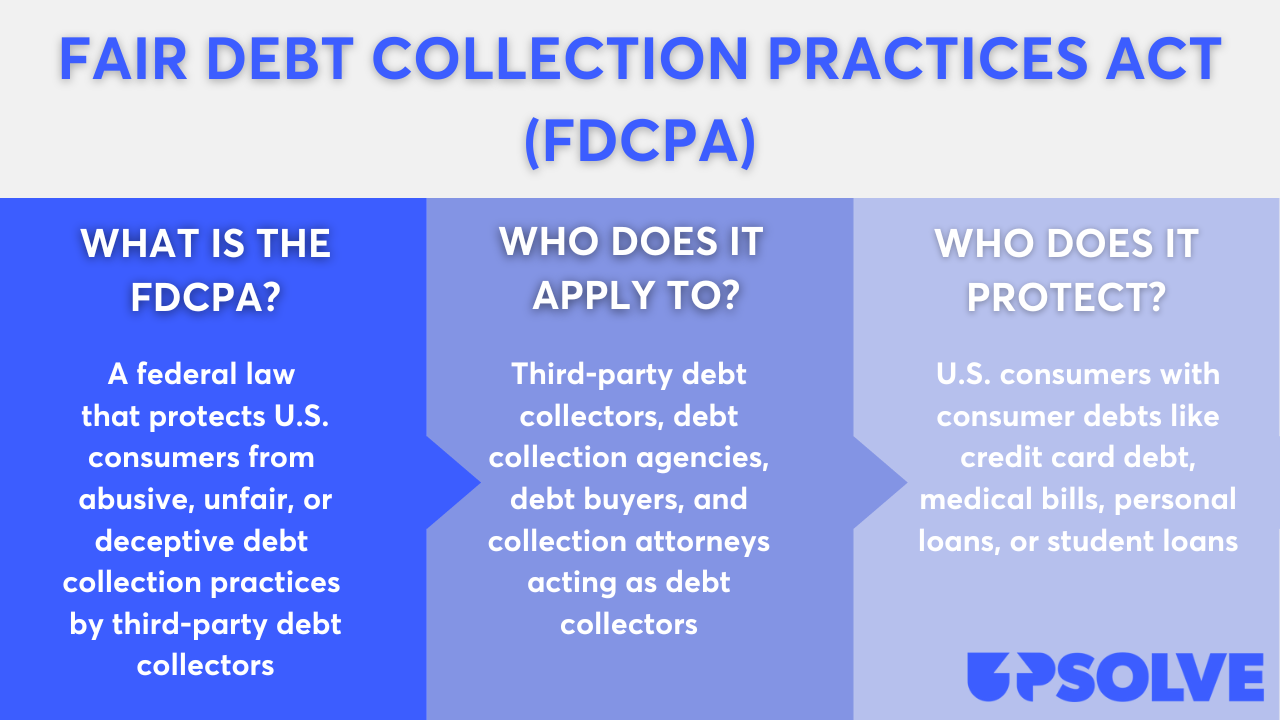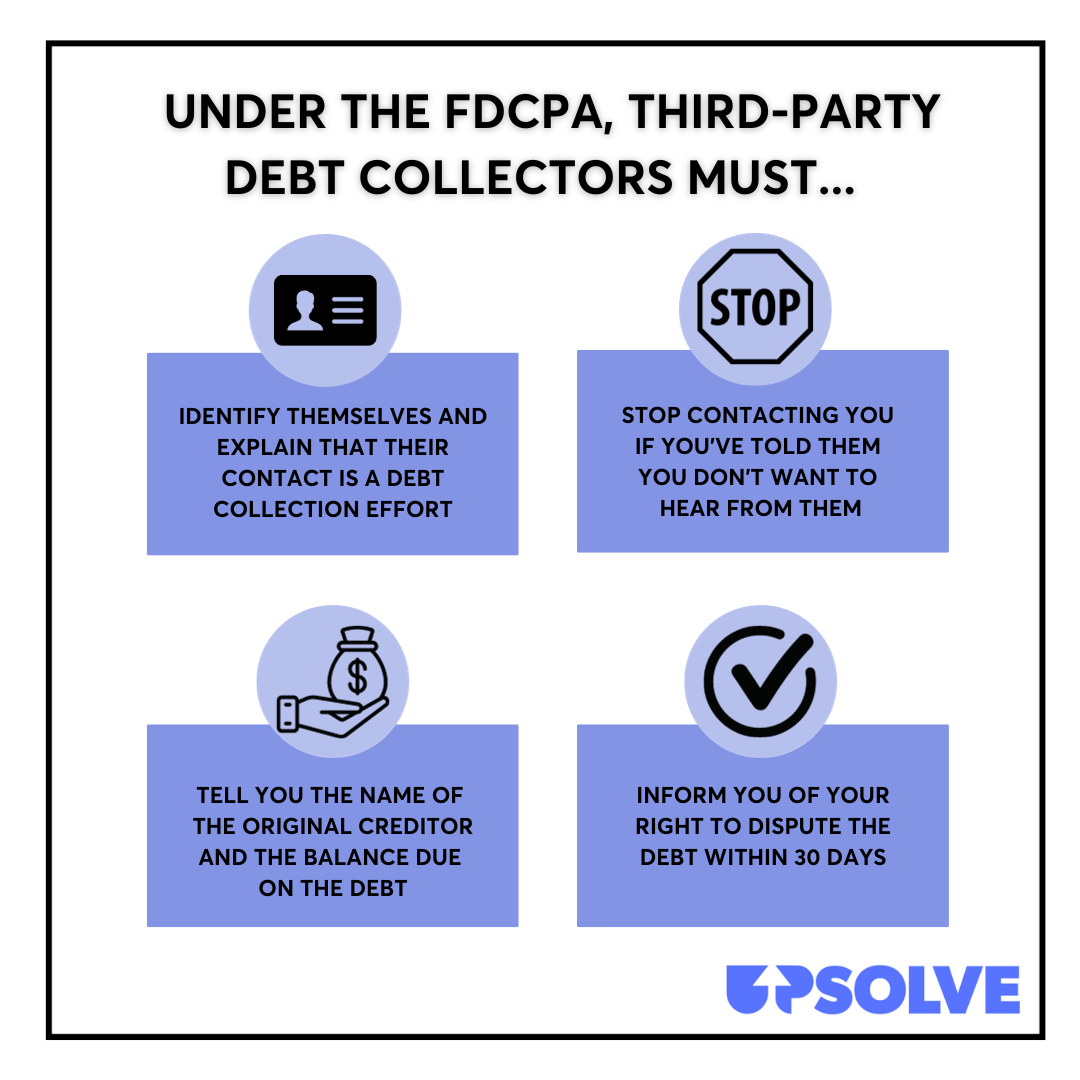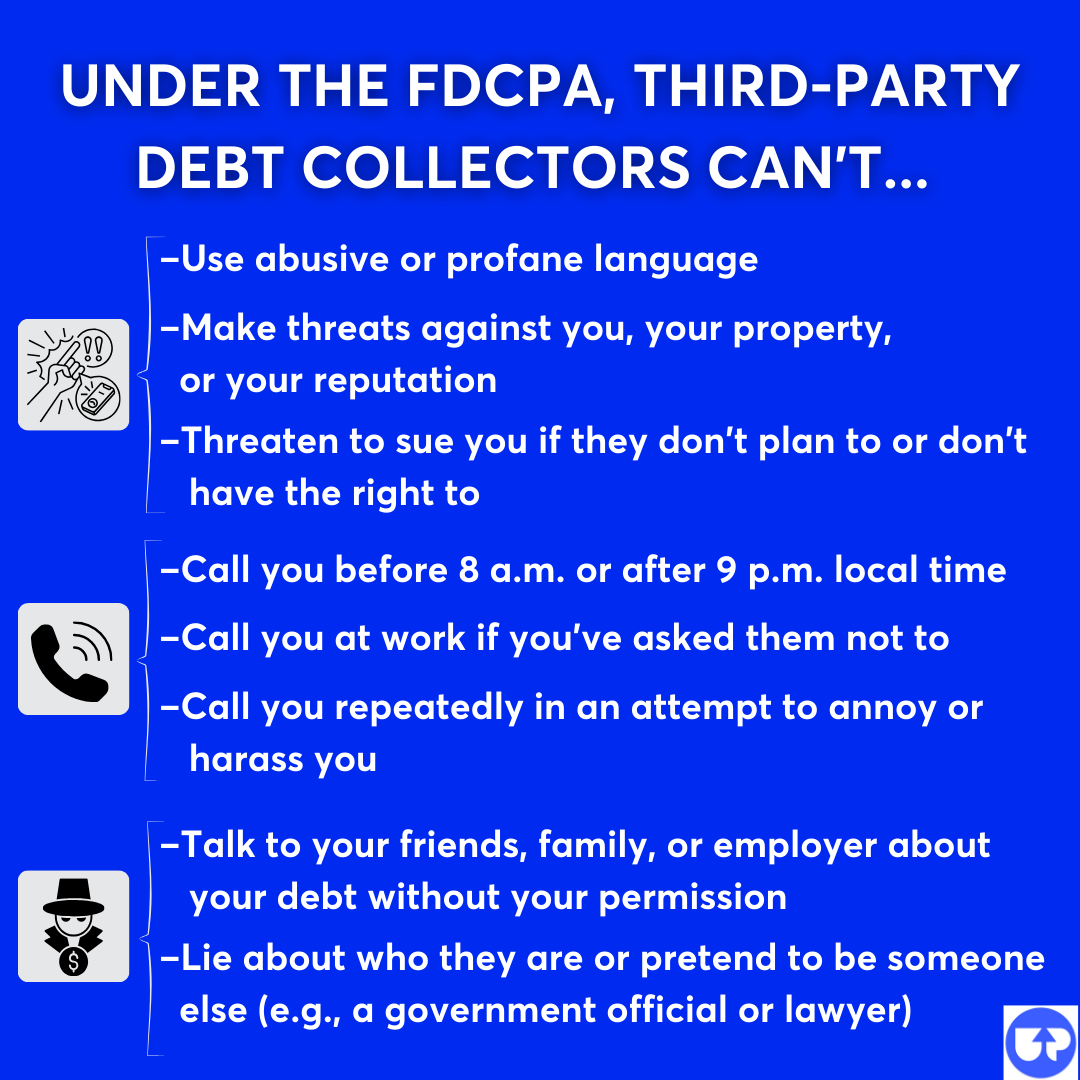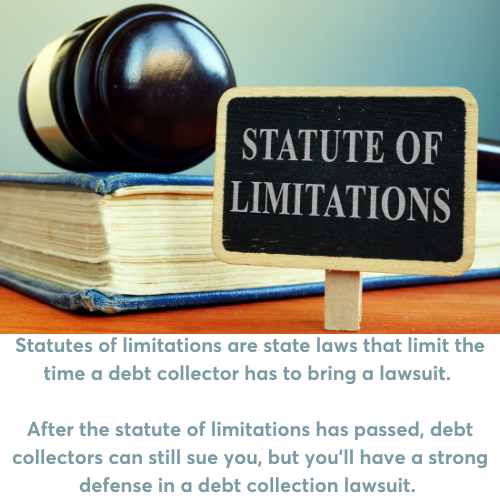Your Guide to North Carolina’s Debt Collection Laws
Upsolve is a nonprofit that helps you eliminate your debt with our free bankruptcy filing tool. Think TurboTax for bankruptcy. You could be debt-free in as little as 4 months. Featured in Forbes 4x and funded by institutions like Harvard University — so we’ll never ask you for a credit card. See if you qualify →
North Carolina has three strong debt collection laws: the North Carolina Collection Agency Act, the North Carolina Debt Collection Act, and the Consumer Economic Protection Act of 2009. These laws protect North Carolinians from unethical and dishonest debt collection practices. Further protection is provided by the federal Fair Debt Collection Practices Act (FDCPA).
In North Carolina, the statute of limitations for credit card debt and medical bills is three years.
Written by Upsolve Team.
Updated September 16, 2025
Table of Contents
- What Are the Debt Collection Laws in North Carolina?
- What Can You Do if a Debt Collector Breaks the Law in North Carolina?
- What Is the Statute of Limitations for Debt Collection in North Carolina?
- What Can Debt Collectors Do To Collect Debt in North Carolina?
- Need Help With Debt Relief? Here Are Some Options
What Are the Debt Collection Laws in North Carolina?
North Carolina has three important state laws that regulate debt collectors:
North Carolina Collection Agency Act (outlined in Section 58-70 of the NC General Statutes)
North Carolina Debt Collection Act (outlined in Section 75-50)
Consumer Economic Protection Act of 2009
North Carolinians also have further protection from the federal Fair Debt Collection Practices Act (FDCPA).
How Do North Carolina’s Laws Protect You Against Debt Collectors?
The three state laws that regulate debt collectors and collection agencies provide important protections.
The North Carolina Collection Agency Act (CCA)
Under the North Carolina Collection Agency Act (CCA), debt collectors are prohibited from:
Threatening you, which includes threatening to have you arrested or to damage your reputation
Harassing or abusing you, which includes using profane or obscene language and calling you too frequently or at unreasonable hours
Publicizing your debt, which includes talking about your debt with any third party except your spouse or attorney
Misleading or deceiving you, which includes not telling you they are a debt collector, pretending to be a lawyer or government official if they’re not, using documents that look like official legal documents, or otherwise misrepresenting your debt or how much they allege you owe
Using unfair practices, which include charging fees they’re not legally allowed to or trying to get you to waive your legal rights without explaining them
The CCA regulates third-party debt collection agencies trying to collect on consumer debt, like credit cards and medical bills. Unlike many other states’ laws, the CCA also applies to commercial or business debt collection efforts. The law requires third-party collection agencies to register with the state and get a permit to operate in the state.
Though this situation is somewhat rare, it’s important to know that this law doesn’t apply to law firms handling their own collections or claims. However, if a debt collector or debt buyer has hired a lawyer to help them with collections, the law firm and debt collector must follow the CCA.
The North Carolina Debt Collection Act (DCA)
The North Carolina Debt Collection Act is very similar to the CCA, but it has one important difference: It also applies to original creditors. This essentially extends the protections of the CCA to anyone who is trying to collect on a consumer debt. (The DCA does not cover business debts.)
Under the DCA, debt collectors are prohibited from:
Threats and coercion
Harassment
Unreasonable publication (publicizing your debt to third parties)
Deceptive representation (misrepresentation and deception)
Unconscionable means (unfair practices)
The Consumer Economic Protection Act of 2009
When debt collectors don’t get their way, they often turn to the courts. This law requires debt collectors to give you a 30-day written notice of intent to file a lawsuit against you.
Why does this matter? If you get sued in North Carolina, you only have 30 days to respond. If you don’t respond, you’ll probably lose the case by default. While you can respond to the lawsuit without hiring a lawyer, many people don’t respond because they don’t know what to do or have too much other stuff going on. This state law gives you a heads-up about a potential lawsuit, which can give you more time to dispute the debt, try to settle the debt for less than the full amount, or otherwise negotiate with the debt collector to avoid going to court.
The law also spells out exactly what debt collectors must include with a lawsuit to prove to the court that you actually owe the debt and that they actually own it and are legally allowed to collect on it (58-70-150 and 58-70-155). Many other states don’t include such clear rules. This makes it easier for debt collectors to sue people and win default judgments even if they haven’t proved the debt details in their complaint.
How Does the Federal FDCPA Protect You?
In addition to North Carolina’s state laws, residents are also protected by the federal Fair Debt Collection Practices Act (FDCPA).
This law has many similarities to the North Carolina Collection Agency Act. Here’s a basic overview of the FDCPA:

The FDCPA gives consumers certain rights in the debt collection process by requiring debt collectors to do the following:

And the FDCPA prohibits debt collectors from doing certain things, such as:

You can read Upsolve’s Guide to the FDCPA to learn more about these federal protections.
What Can You Do if a Debt Collector Breaks the Law in North Carolina?
If you think a debt collector has violated your rights or broken the law, you can fight back by filing a complaint against them or even bringing a lawsuit against them to recover damages. Damages is the legal term for monetary compensation. Here’s how to do both.
File a Complaint
The North Carolina Attorney General is tasked with enforcing the state’s debt collection laws and investigating debt collectors who break them. If you’ve experienced bad behavior from a debt collector, you can file a complaint online with the attorney general.
You can also file a complaint with the Consumer Financial Protection Bureau (CFPB). This is the federal agency that helps enforce the FDCPA. If the CFPB can’t help you, they may forward your complaint to the Federal Trade Commission, another federal agency that helps enforce the FDCPA.
File a Lawsuit
Under North Carolina law, you have the right to sue debt collectors who break the law. You can bring your lawsuit in a local state court. If you win your case, you can recover actual damages (money to compensate for real losses or harm) and statutory damages (compensation for the debt collector breaking the law) of $500–$4,000 per violation.
If you hire a lawyer to help you with your case, you can also request to have your attorney fees covered. This will be up to the judge’s discretion.
You can also sue third-party debt collectors in federal court for FDCPA violations. If you win your case, you’re eligible for actual damages and statutory damages of up to $1,000.
Upsolve Member Experiences
4,641+ Members OnlineWhat Is the Statute of Limitations for Debt Collection in North Carolina?
Debt collectors can’t try to collect on a debt indefinitely. The statute of limitations limits how long debt collectors have to sue you for your debt. In North Carolina, the statute of limitations is:
Three years for credit card debt, medical debt, and other open accounts
Four years for contracts of sale (for example, auto loans)
10 years for mortgages

It’s important to know the statute of limitations because this is a strong defense if you get sued for an old debt. In some cases, you can accidentally restart the statute of limitations. For example, if you agree or acknowledge that you owe the debt or if you make a payment toward the debt (even if it’s a small amount), the statute of limitations may restart. This gives a creditor even more time to sue you if they choose.
This is why it’s really important to be careful if you get contacted about a debt that’s a few years old. In these situations, assert your rights. Before you give them any information, ask the debt collector to send you a debt validation letter.
You can also send a debt verification letter to ask for more details about the debt, including whether it’s past the statute of limitations. The debt collector may not be legally obligated to answer this, but it’s worth asking, and it shows the debt collector that you know your rights.
What Can Debt Collectors Do To Collect Debt in North Carolina?
There are legal limits to what debt collectors can do, but they still have a lot of leeway when it comes to collecting a debt they believe you owe.
Debt collectors can call you, send you notices, and even contact you on social media. These efforts will likely continue for a few months before they decide to escalate the matter. If there’s no resolution after a while, it’s common for debt collectors to take people to court.
Unfortunately, it’s also common for people to ignore the papers they get telling them they’re being sued for a debt. You may hope the case will go away, but ignoring it usually means you lose by default and the debt collector gets access to new tactics. With a court order in hand, the debt collector can:
Garnish your paycheck (though they can’t take it all)
Take money from your bank account (bank levy)
Place a lien on your property
If you’re being pursued for debt on an auto loan, you’ll also be at risk of repossession. In North Carolina, lenders can repossess your car without a court order as soon as you default on your loan.
The most important thing you can do if you get sued for a debt is respond to the lawsuit within 30 days! To learn more, read our guide to Fighting Debt Lawsuits in North Carolina.
📌 If you want help responding to the debt lawsuit but you can't afford a lawyer, consider using SoloSuit, a trusted Upsolve partner. SoloSuit has helped 280,000 respond to debt lawsuits and settle debts for less. They have a 100% money-back guarantee, and can make the response process less stressful and quicker!
Need Help With Debt Relief? Here Are Some Options
Dealing with debt collectors is stressful. And so is dealing with debt. But you don’t have to do this alone. If you want to take control of your debt and get debt collectors off your back for good, consider setting up a free meeting at an accredited credit counseling agency. Credit counselors are trained professionals who help people make a plan to deal with their debt and get their finances on track.
They can help you streamline your monthly payments and negotiate lower interest rates with your creditors in a debt management plan. Or they may suggest consolidating your debt to achieve a similar goal. If your debt is overwhelming, and there’s not a clear path to catching up soon, they may suggest filing bankruptcy to get a fresh start. Find a credit counselor near you.
If you decide bankruptcy is your best option, you may be eligible to file for free using Upsolve’s filing tool. Upsolve has helped 300,000 people erase over $700 million in debt since we started in 2016.
If you need legal assistance to deal with a debt matter but can’t afford a lawyer, try contacting Legal Aid of North Carolina.
